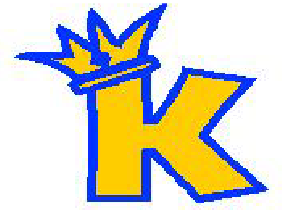About Us
With deep gratitude and respect, we are honoured to be learning and unlearning on the ancestral and unceded lands of the xʷməθkʷəy̓əm (Musqueam), Sḵwxwú7mesh Úxwumixw (Squamish Nation) & səlilwətaɬ (Tsleil-Waututh Nation).
Our school is located on the west side of Vancouver on the traditional, ancestral and unceded territories of the Musqueam, Squamish and Tsleil-Waututh Nations. Our property is near the UBC endowment lands, Pacific Spirit Park and the Musqueam First Nations reserve. The original Lord Kitchener Elementary School opened in the Dunbar neighbourhood of Vancouver in 1914. In October 2012, a striking seismically upgraded school that incorporated the original 1914 frame school building was opened. The new school's design enables students and staff to work together in a school environment that is bright, innovative, modern, visually stimulating, and physically accessible. Our school has a strong focus on outdoor learning with an outdoor garden space, which is supported by students, parents and the Earth Bites programming to keep the garden beds thriving year-round.
The school is comprised of six learning communities. Each community features professional offices, learning spaces, and a learning commons; a space where students and staff can meet and work together. During the 2022-2023 school year an average of 435 students from Kindergarten through Grade Seven enrolled at Lord Kitchener School. The school culture is vibrant and caring, where the staff and students work together to foster an environment that is based upon respect.
Our school community includes families from a rich diversity of cultural backgrounds and the students speak a variety of languages. The students do very well in all aspects of the curriculum and many of them are proficient or extending in the Ministry of Education expectations in academic areas. Lord Kitchener has a Parent Advisory Council that is actively involved in many ways to support the school and community. The staff of Lord Kitchener is a dedicated group of educators who are passionate about engaging students in relevant, active learning experiences, while maintaining high expectations for each student’s academic and social development.
Kitchener has a strong athletics program, and a variety of extracurricular athletic activities are offered to intermediate students in cross country, basketball, soccer, track and volleyball. Staff offer lunchtime clubs including Diversity Club, Sustainability Club, Music Club, Writing Club, and Chess Club. Many leadership opportunities are offered to our students including Office Monitors, Library Monitors, Peer Helpers, Morning Announcers, and Assembly Leaders. We also offer Ready Bodies, Learning Minds, and a cooking club to meet the needs of our diverse learners. To assist the youngest learners and their families make the transition into kindergarten as positive as possible we host a Welcome to Kindergarten event in the spring.
Parents are actively involved as partners in our school. In the fall, parents organize a Bingo Night to bring families together and help raise money for the school. In December, the PAC organizes a Winter Market with a cake walk, crafts, and carols. In the winter, with the support of our Settlement Worker, parents organize a Lunar New Year festival. Students and parents are involved in the celebration with dancing, music, and a fashion show. During May, parents are actively organizing Bike Rodeo and participating as guest readers for our Camp Read. In the spring, the parents organize a school-wide Carnival with games, inflatables, and food for the whole family. During the year parent volunteers organize hot lunch two days a week.
Our original inquiry question for Year One of the school plan was to focus on the impact of teaching kindness on students’ social and emotional development. The evidence for the need of this goal was driven by the results in previous DESSA Mini Assessments, Student Learning Surveys, and staff observations. Teachers have observed growth in compassion and self-regulation, the development of interpersonal skills to solve problems in peaceful ways, sharing stories of how problems were solved and offering feedback. Many students are using the language of the Zones of Regulation program and showing an increase in building resiliency and self-sufficiency. We have previously focused on creating a culture of care and shared responsibility; responsibility for action and words and respecting differing perspectives. While lots of work has been done on teaching kindness, there is still room for growth. Staff, students, and parents report a need to focus on helping students develop positive friendships and conflict resolution skills. This goal supports the VSB Education Plan’s goal to improve student achievement, physical and mental well-being, and belonging by encouraging students to reach beyond previous boundaries in knowledge and experience and improving school environments to ensure they are safe, caring, welcoming, and inclusive places for students and families.

